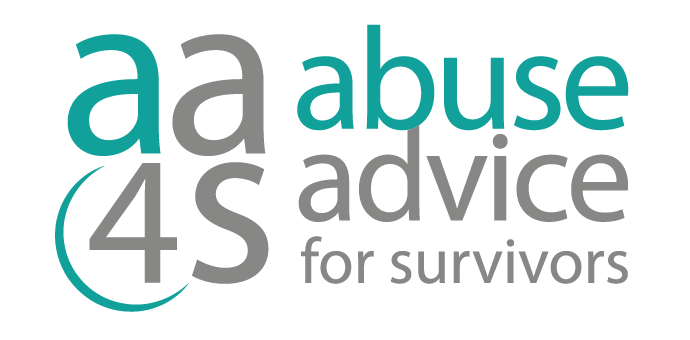
Introduction
I must admit that I thought we had come to the end of all the celebrity abuse scandals until I realised that no one challenged the all powerful, but suspected sex offender Savile until after he was dead. Just as no one dare challenge Savile, just so Al Fayed. They were both a bit creepy, and abused in plain sight. As the days go by more and more evidence comes out which shows that many within Harrods knew exactly what was going on but did not blow the whistle out of fear. Whether or not the cover up extended beyond the walls of Harrods remains to be seen. As Al Fayed appears to have been a serial paedophile, and travelled widely, it is likely that the case will be world wide. We must await developments.
In this article, I look at how the law is stacked against not only the Al Fayed victims, but also all survivors of abuse who try and gain justice under the law. IICSA (Independent Inquiry into Child Sexual Abuse) recommended 20 law changes in October 2022, and not one of them has been brought into force
Time Delay
The law says that any survivor of abuse has to start legal proceedings before the age of 21, but none of them do so for many reasons, an argument recognised by IICSA who recommended that the rule be abolished, as it has been in Scotland.
If a survivor dies, then time starts afresh and runs for three years from death. The same rule, however, does not apply to the Defendant, so in the Al Fayed case, all the victims will have to get over the time bar hurdle before they can even start fighting their case in Court, something which Harrods can use against them to try to lever a favourable deal. I discuss time delay in this article
According to “Alice”, the brave victim/survivor who took part in the BBC Documentary, she was 16 when she started work at Harrods in 1986, and was raped by Al Fayed around 1987. So time ran out when she was 21 in 1991, but she was still working at Harrods under the control/dictatorship of Al Fayed, Not only was Alice, but also the staff were terrified of him.
At their Press Conference on the subject of Limitation, Armstrong (Leading Counsel) said: ‘I hold out a challenge to Harrods that if Harrods are going to seek to say to us these claims should be barred on the basis of limitation, then they are effectively adopting the argument that threats will always win the day. We will not accept that argument and we are pretty confident the courts won’t either.’ Fair argument, and one that we use regularly, sometimes to no avail.
The Redress Scheme
Harrods have announced that all they will compensate all victims of abuse by Al Fayed, which, on the surface seems reasonable, and, no doubt designed to attempt to safeguard their reputation. One has to remember that these claims have not suddenly appeared but have been going on for some time.
We know little of the scheme other than a statement on the Harrods website asking any victim to contact them. I was listening to a BBC Reporter who commented that it was designed to exclude the lawyers and be quick and cheap. If true, any attempt to exclude lawyers will be misguided, because the clients always have the alternative of the Courts, which would definitely be more expensive for Harrods, but more profitable for the clients (probably)
I have encountered many different Redress Schemes over the years, the first of which, back in 2005, was the Irish scheme designed to compensate victims of abuse in Industrial Schools. It is the best one I have encountered, not only because it was well thought out, but also because it was not a money saving scheme, but designed to be an alternative to the Court. It recognised that the victims were traumatised, and needed the support of their lawyers, who were properly paid for the work they did.
I heard the Junior Barrister for the victims complaining bitterly about the scheme. She said that
- It was not independent. Harrods say it will be run by independent lawyers
- It was designed to be quick and cheap
- It would not explore claims such as how the abuse had affected the work life of the victim. It is usual for a victim of abuse to be anti-authority, have mental problems, and be unable to sustain a regular work record.
Whether or not the lawyers will be able to stop the victims from taking the easy route remains to be seen. One of the main advantages of the scheme is likely to be that it will not argue time delay or liability. In the Manchester City Barry Bennell cases, some of the victims ignored the offered redress scheme, and lost in the High Court.
One of the IISCA recommendations is to set up a bespoke redress scheme nationwide for all victims of abuse not only for Al Fayed victims but all survivors of abuse. There is no indication, however, of when it might arrive.
Harrods v Insurers
There is usually a marked difference between the attitude of insurers, whose main and , arguably, only criteria is money, and the institution itself, who are more concerned with loss of reputation. We see this most acutely with private schools and the church, where often abuse is covered up for years. Most famously abusive priests were moved sideways to a different parish, where often they continued to abuse children. The Al Fayed case appears to be the clearest case of a cover up. I am amazed that so many former employees have lined up to say that the abuse was widely known about but staff were too afraid to do anything about it because Al Fayed ruled the shop with a rod of iron. Usually there is a mood of misdirected loyalty that keeps mouths shut.
What is the Legal Effect of a Cover Up?
Before the case of A v. Hoare (2008), we used to argue that abuse was caused by the negligent mismanagement of the institution in question. It was not possible for complicated legal reasons, to sue in assault and battery, as it is now. I am surprised therefore that so much is being made of the negligent mismanagement of Harrods.
Normally, the law of vicarious liability applies, which means, that as long as the victims can prove that they were abused by Al Fayed, because he was an employee or Chairman of the Company, the company – Harrods or their corporate owner, are automatically liable for what he did.
If, however, the Claimants can prove misfeasance amongst management and a cover up, they are more likely to be awarded aggravated and punitive damages.
I just wonder whether Harrods are trying some clever technical argument to the effect that Al Fayed was not an employee of Harrods but a self employed consultant, or employee of another company. There may also be an argument that when Al Fayed sold Harrods, there was no transfer of liabilities….but again, I am probably massively overthinking this one.
The Need for Change
There were 20 changes recommended by IICSA but the main ones for me are:-
- Time Delay abolition
- Redress Scheme
- Mandatory Reporting
- Child Protection Agency
Whilst the law is in a much better state than it was when I started doing this type of case back in 1994, victims of abuse are losing far too many cases. The cards are unfairly stacked against them, something I have to repeatedly apologise for, when it isn’t really my fault. I do, however, remain hopeful that with a former Director of Public Prosecutions, who rewrote the prosecution code for abuse survivors, the changes recommended by IICSA will be implemented. I fear, however, that we are too far down a very long list.



